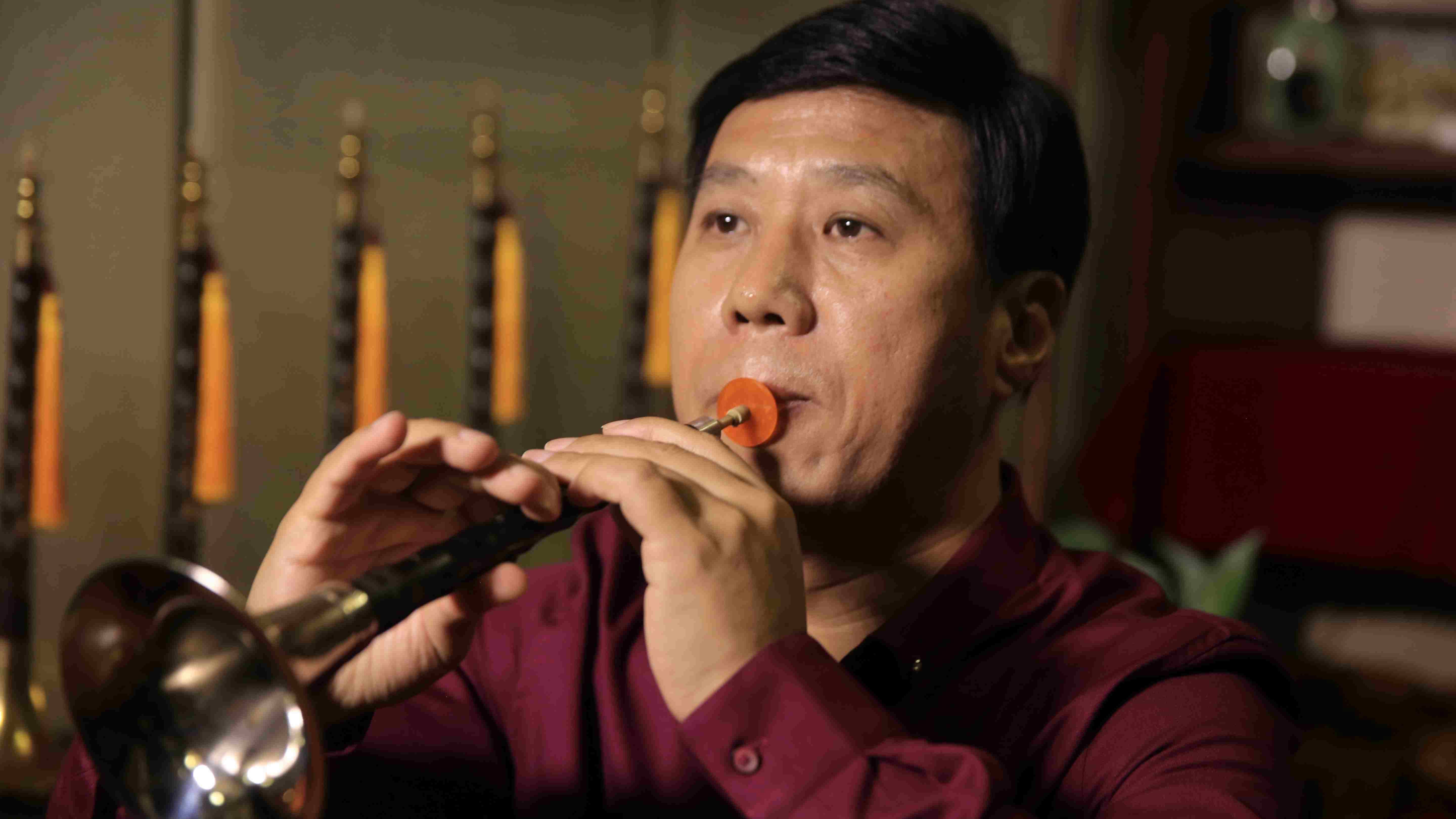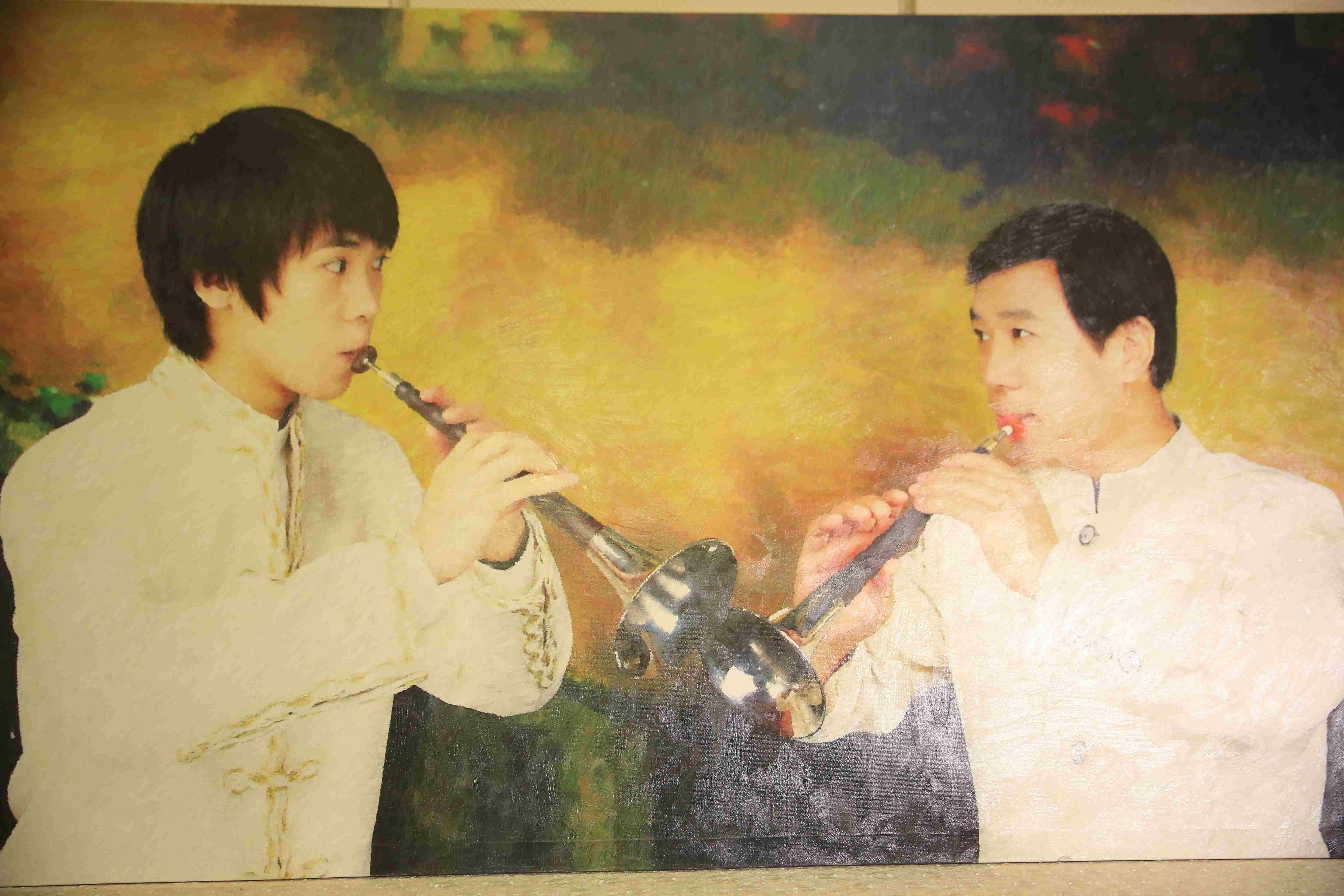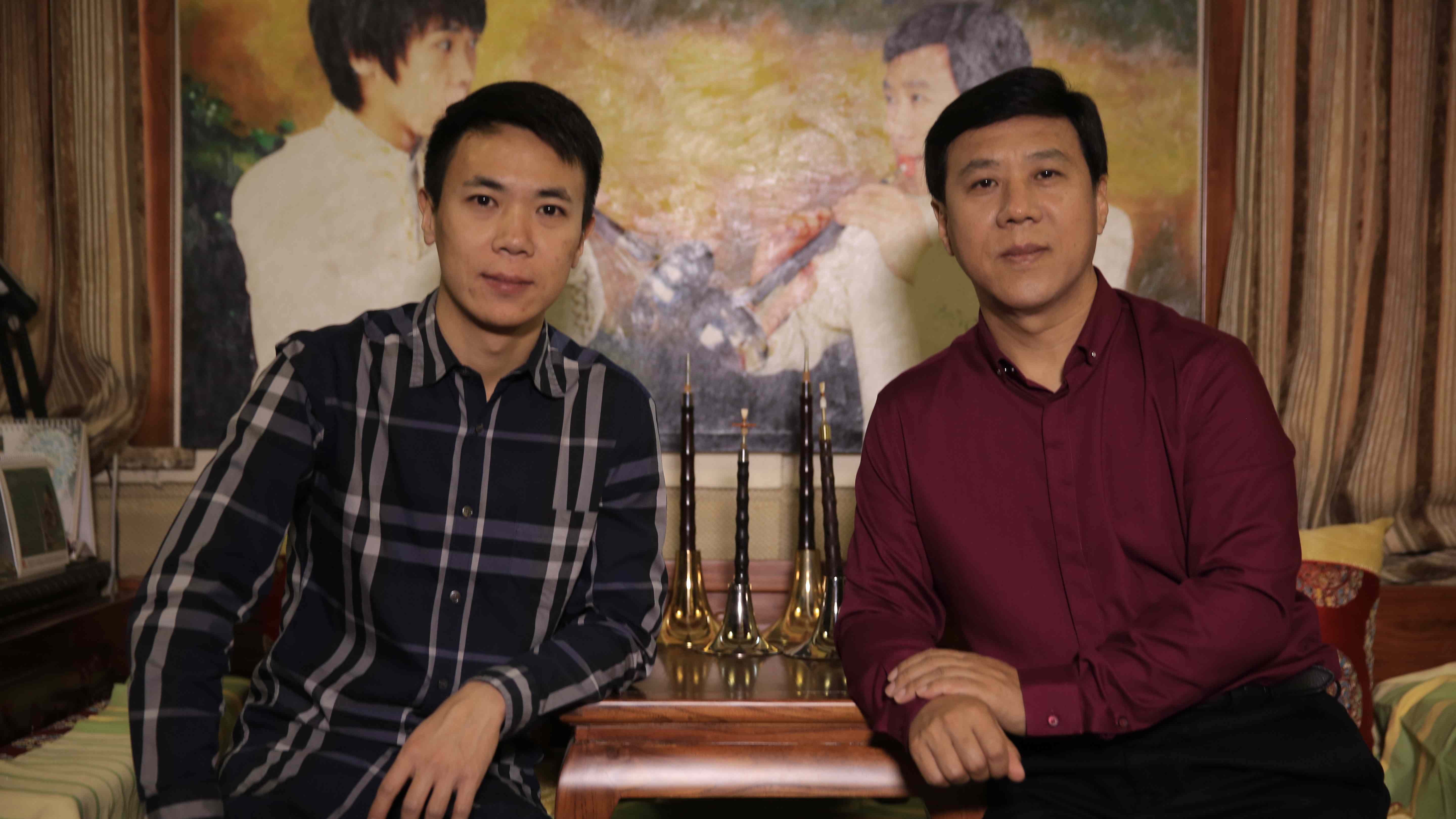
Culture
16:58, 22-Nov-2017
Meet the musician preserving one of China’s most unique sounds
Ty Lawson

One of the most unique and high-pitched sounds often heard in traditional Chinese music comes from the suona, an instrument one musician is trying to preserve.
Zhou Dongchao is a suona master in Beijing who has been playing the instrument for nearly 50 years.
“My family [has] played the suona for generations. It’s a heritage passed down from my grandfather’s father, grandfather, my father and then to me. I’m the fourth generation playing suona. And my son is the fifth generation,” Zhou told CGTN Digital. “I learned to play the flute when I was seven years old and began to play suona at nine.”

Suona master Zhou Dongchao playing the instrument in his home. / CGTN Digital
Suona master Zhou Dongchao playing the instrument in his home. / CGTN Digital
The suona is an important instrument in the folk music in China, particularly in the provinces of Shandong and Henan, where it has long been used for festival and military purposes. It is still used, in combination with sheng mouth organs, gongs, drums, and sometimes other instruments, in wedding and funeral processions. Such wind and percussion ensembles are called chuida in Chinese.
The China Broadcasting Orchestra member is hoping the tradition never dies.
“I think the method to let it pass on in a better way is to make good music. In recent years, I put most of my efforts in making music. There are so many suona players, but not that many songs,” he said. “So what I’ve contributed (in making music) has been appreciated by many people.”
Musical odyssey
When the CGTN Digital team visited his home, Zhou shared some of his experiences playing the suona around the world.
“What impressed me the most is golden concert hall in Austria. When the sound of [the] suona came out, the audience held their breath while appreciating the music,” Zhou said. “After the performance, thunderous applause broke out.”

Painting of suona master Zhou Dongchao and his son, also a suona player, Zhou Yixiang. / CGTN Digital
Painting of suona master Zhou Dongchao and his son, also a suona player, Zhou Yixiang. / CGTN Digital
While proudly sharing his travel adventures Zhou was quick to note their recognition.
“Tours in Germany, Portugal, Spain, America… many audiences followed us from one city to the other, we are popular and sensational,” he said.
Zhou said because of suona’s unique sound in China it is often part of an ensemble playing alongside other instruments. But overseas he said the suona is often the solo star.
“It has gained large popularity when it is played in solo, which has a richer expression,” he said. “I performed at the UN headquarters in 2013. My awarded song “Huangtuqing" that I wrote by myself had gained support from over 100 ambassadors… They said they did understand, and loved the 'trumpet' the most. They recognized suona as a trumpet.”
But even with all of Zhou’s suona playing experiences, one thing he is most proud of is passing on the love of the instrument to others.
“The suona has been passed down for more than 800 years. Now, more and more young people learn how to play because it has a great charisma,” he said.
Family affair
Zhou’s son, Zhou Yixiang, now plays as well and travels the world like his father introducing legions of new fans to the Chinese tradition.

Suona master Zhou Dongchao and his son, Zhou Yixiang. /CGTN Digital
Suona master Zhou Dongchao and his son, Zhou Yixiang. /CGTN Digital
“They (son and his wife) play in duet very often and have been to many places to perform, in the country or outside the country,” Zhou said. “As for me, I mainly play in solo.”
Zhou was proud to proclaim the suona is a family affair.
“We are the suona family,” Zhou said. “And on the other hand, my son likes the music, so he starts his own musical journey.”
Zhou’s wife does not play the suona like the rest of the family but no doubt she is his biggest fan.
“The souna is loud but there’s technique when it comes to practice. Even sometimes if I play it out loud to showcase at home, my wife has always been understanding,” Zhou said. “She has no complaints. For this, I really want to thank my wife.”
(Translations by Shenqiu Rachel Hu)

SITEMAP
Copyright © 2018 CGTN. Beijing ICP prepared NO.16065310-3
Copyright © 2018 CGTN. Beijing ICP prepared NO.16065310-3